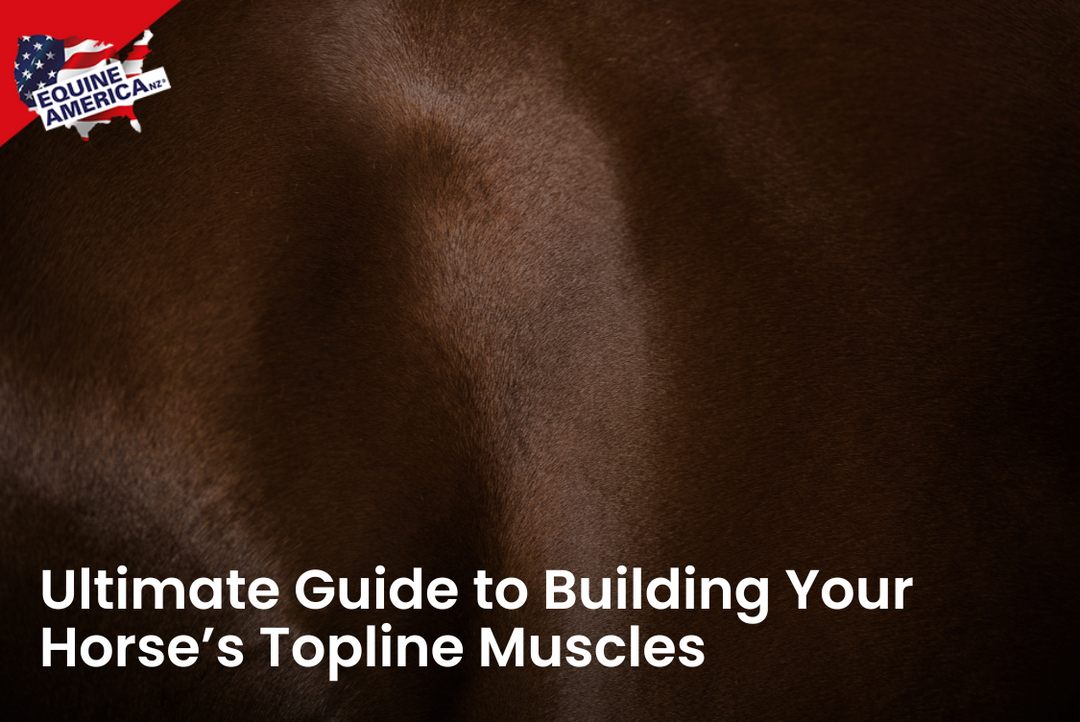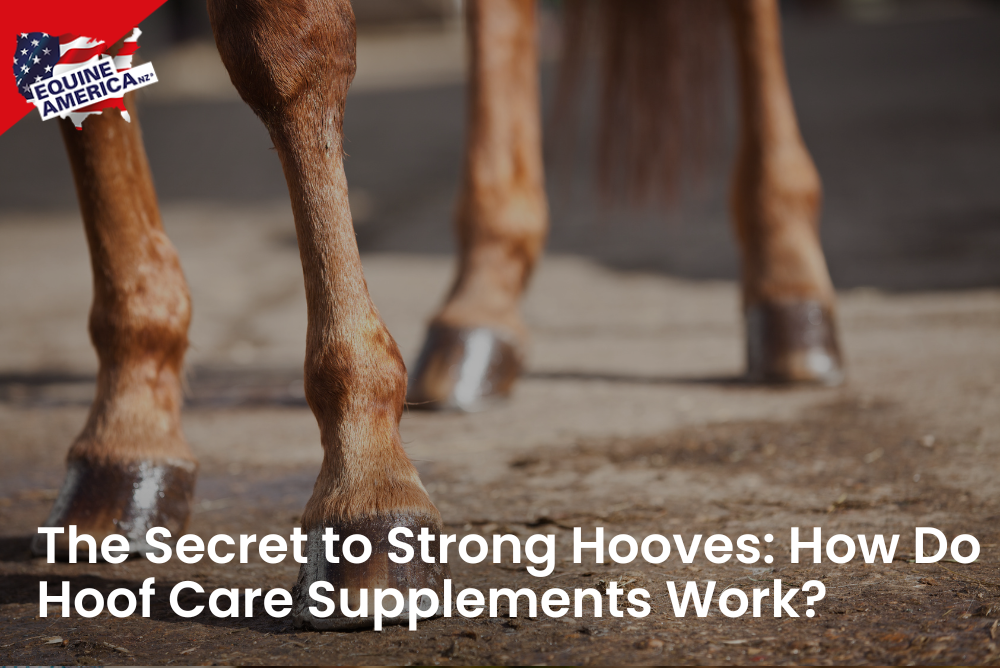Caring for your horse is not just about feeding and grooming; it's also about ensuring their overall well-being. One crucial aspect of their health is maintaining strong and healthy joints. The condition of your horse's joints can have a profound impact on their mobility and overall quality of life. In this article, we'll delve into the significance of preserving your horse's joint health and the consequences of joint issues on their well-being.
1. Provide a Balanced Diet
A well-balanced diet is at the core of promoting your horse's joint health. Just as humans need a variety of nutrients to stay healthy, horses require essential elements to keep their joints in optimal condition. Let's explore the key players in maintaining those healthy joints:
- Glucosamine: Glucosamine is a natural compound that plays a crucial role in the formation and repair of cartilage. Cartilage acts as a cushion in the joints, preventing bone-on-bone contact. Including glucosamine in your horse's diet can aid in cartilage maintenance, reducing the risk of joint issues.
- Chondroitin: Chondroitin is another essential component of cartilage. It helps maintain joint health by retaining water in the cartilage, ensuring it remains elastic and able to absorb shock. A diet rich in chondroitin can contribute to resilient and flexible joints.
- Omega-3 Fatty Acids: Omega-3 fatty acids have anti-inflammatory properties, which can be beneficial for horses with joint discomfort. They help reduce inflammation within the joint, promoting comfort and mobility.
Incorporating these essential nutrients into your horse's diet is a proactive step in safeguarding their joint health. A balanced diet not only supports the longevity of your horse's joints but also enhances their overall well-being.
2. Regular Exercise
Regular exercise is a cornerstone in maintaining your horse's joint health. It is not only about keeping your equine friend physically fit but also about ensuring the well-being of their joints. Here's why:
- Joint Mobility: Regular exercise helps keep your horse's joints mobile and flexible. When horses move, their joints are lubricated, and the synovial fluid that nourishes their joints is circulated, contributing to joint health.
- Muscle Strength: Strong muscles provide additional support to your horse's joints. They help distribute the load evenly, reducing stress on the joints. Adequate muscle tone is crucial for joint stability.
- Weight Management: Exercise helps manage your horse's weight effectively, another pivotal factor in joint health. Maintaining a healthy weight alleviates the strain on the joints, minimizing the risk of damage and discomfort.
To make the most of exercise, it's essential to tailor routines to your horse's specific needs, which can vary based on their age, breed, and activity level. Consulting with a professional, such as a veterinarian or an equine trainer, can help you design an exercise plan that suits your horse's individual requirements.
3. Proper Weight Management
Proper weight management is a crucial component of preserving your horse's joint health. Here's why it matters:
- Joint Strain: Excess weight places significant strain on your horse's joints. The more weight the joints must support, the higher the risk of wear and tear, leading to joint issues.
- Arthritic Conditions: Overweight horses are more prone to developing arthritic conditions. Arthritis is painful and can severely limit your horse's mobility and overall well-being.
Effective weight management involves a combination of a controlled diet and regular exercise. By maintaining a healthy weight, you not only prevent the undue stress on your horse's joints but also enhance their overall quality of life.
4. Quality Supplements
When it comes to supporting your horse's joint health, several popular joint supplements have proven to be effective. These supplements are specifically formulated to promote joint function and alleviate joint discomfort. Here are some commonly used joint-specific formulations and their benefits:
- Glucosamine and Chondroitin: This combination of nutrients is widely recognized for its joint-supporting properties. Glucosamine aids in cartilage formation and repair, while chondroitin helps maintain joint flexibility by retaining water in the cartilage.
- Omega-3 Fatty Acids: Omega-3 fatty acids are known for their anti-inflammatory properties. They help reduce inflammation within the joints, providing comfort and promoting mobility.
- MSM (Methylsulfonylmethane): MSM is a sulfur compound that is often included in joint supplements. It has anti-inflammatory and antioxidant properties, making it beneficial for horses with joint discomfort.
- Hyaluronic Acid: Hyaluronic acid is naturally present in joint fluid and helps lubricate the joints. Supplementing with hyaluronic acid can enhance joint mobility and reduce friction.
- ASU (Avocado/Soybean Unsaponifiables): ASU is a natural vegetable extract that has anti-inflammatory and joint-protective properties. It can be particularly helpful for horses with existing joint issues.

5. Regular Veterinary Check-ups
Regular veterinary check-ups are a critical aspect of maintaining your horse's joint health. Here's why they matter:
- Early Detection: Regular check-ups allow for the early detection of joint issues. Your veterinarian can assess your horse's joints and identify any signs of discomfort or abnormalities before they become more serious.
- Professional Guidance: Professional guidance is essential in managing your horse's joint health effectively. A veterinarian can recommend appropriate treatments, therapies, or dietary adjustments to address any joint concerns.
- Preventive Measures: Veterinarians can also provide guidance on preventive measures to protect your horse's joints. This may include advice on exercise routines, dietary supplements, and lifestyle adjustments.
By prioritising routine veterinary care, you can significantly enhance your horse's joint health and overall well-being.
Final thoughts
Your horse's joint health is a vital component of their overall well-being. By providing a balanced diet rich in essential nutrients, incorporating regular exercise, managing their weight effectively, considering quality supplements, and seeking routine veterinary care, you can support and protect your horse's joints. Prioritizing joint health ensures that your equine companion can enjoy a long, active, and pain-free life.
If you're in search of high-quality joint supplements, consider exploring the range of products offered by Equine America NZ. Your horse deserves the best care, and maintaining their joint health is a significant step in that direction.
Please give us a call at Equine America NZ today at 0800 440 888 to learn more or leave an enquiry.




